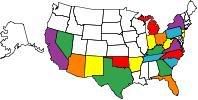I always use wd 40, light oil, or assembly lube on bolts
Announcement
Collapse
No announcement yet.
You can still learn (torquing bolts)
Collapse
X
-
You can still learn (torquing bolts)
I had some good training in mechanics as I grew up, but I never knew this
I always use wd 40, light oil, or assembly lube on bolts1978 GS 1000 (since new)
1979 GS 1000 (The Fridge, superbike replica project)
1978 GS 1000 (parts)
1981 GS 850 (anyone want a project?)
1981 GPZ 550 (backroad screamer)
1970 450 Mk IIID (THUMP!)
2007 DRz 400S
1999 ATK 490ES
1994 DR 350SESTags: None
-
Forum LongTimerCharter Member
GSResource Superstar
Past Site Supporter- May 2002
- 19868
- Toronto, Canada
Originally posted by Agemax View Postsome sort of lube is the norm when torquing bolts but some applications do state to torque a fastener dry.
a light oil on a clean thread is the usual way
I have never understood the reasoning behind dry-torquing bolts, as the inherent friction varies considerably with thread cleanliness and temperature, This will cause the meter to show full torque readings well before it would show if there was lubrication involved.
Comment
-
Designing a system you don't want lube in, you'd have to select your fasteners with enough margin that any tension induced at the spec'd torque would be sufficient.Originally posted by argonsagas View PostI have never understood the reasoning behind dry-torquing bolts, as the inherent friction varies considerably with thread cleanliness and temperature, This will cause the meter to show full torque readings well before it would show if there was lubrication involved.
If your engine is wound so tight that you need this special fastener lube, then you must be right at the edge of blowing the thing apart. Myself, I wouldn't want something so fussy on a street vehicle. I'm all for quality fasteners and proper procedure, but I think the stuff being sold in the video is overkill for the vast majority of people. If I was cutting it that fine, I'd use bolts that show me induced tension directly, instead of relying on an indirect measurement like torque.
Use the lube spec'd in the service manual. The fastener was selected for use with that method. For anything else, standard practice is fine.Dogma
--
O LORD, be gracious to me; heal me, for I have sinned against you! - David
Skeptical scrutiny is the means, in both science and religion, by which deep insights can be winnowed from deep nonsense. - Carl Sagan
--
'80 GS850 GLT
'80 GS1000 GT
'01 ZRX1200R
How to get a "What's New" feed without the Vortex, and without permanently quitting the Vortex
Comment
-
wikipedia quote......
The torque value is dependent on the friction produced by the threads and by the fastened material's contact with both the fastener head and the associated nut. Moreover, this friction can be affected by the application of a lubricant or any plating (e.g. cadmium or zinc) applied to the threads, and the fastener's standard defines whether the torque value is for dry or lubricated threading, as lubrication can reduce the torque value by 15% to 25%; lubricating a fastener designed to be torqued dry could over-tighten it, which may damage threading or stretch the fastener beyond its elastic limit, thereby reducings its ability to clamp a joint1978 GS1085.
Just remember, an opinion without 3.14 is just an onion!
Comment
-
I'm not rushing out to buy the product, I was just surprised with the difference in torque values between the various lubes1978 GS 1000 (since new)
1979 GS 1000 (The Fridge, superbike replica project)
1978 GS 1000 (parts)
1981 GS 850 (anyone want a project?)
1981 GPZ 550 (backroad screamer)
1970 450 Mk IIID (THUMP!)
2007 DRz 400S
1999 ATK 490ES
1994 DR 350SES
Comment
-
 SchoonerBill
SchoonerBill
I was always taught to chase internal threads and have everything squeeky clean. This is super important on aluminum/steel combos. Buff your external threads and don't use clicker torque wrenches. Use dial type. But then I am very old school. I was freaked out when my Mercedes manual said to torque head bolts to say 35lbs and then give it another half turn or so. That is for stretchy bolts! Technology marches on, and I have seen many strip threads using any lubricant, especially at the bolt head to surface area. Stick with the technology of the time zone of your bike and you will be fine.
Comment
-
I think that is the most relevant adviceOriginally posted by SchoonerBill View PostStick with the technology of the time zone of your bike and you will be fine.sigpic
Don't say can't, as anything is possible with time and effort, but, if you don't have time things get tougher and require more effort.
Comment
-
I'm in Pacific Time Zone
I took a course on how to tourque a head one evening in Jim's (posplayr) garage but the BS MLS gasket wouldn't cooperate.1983 GS 1100E w/ 1230 kit, .340 lift Web Cams, Ape heavy duty valve springs, 83 1100 head with 1.5mm oversized SS intake valves, 1150 crank, Vance and Hines 1150 SuperHub, Star Racing high volume oil pump gears, 36mm carebs Dynojet stage 3 jet kit, Posplayr's SSPB, Progressive rear shocks and fork springs, Dyna 2000, Dynatek green coils and Vance & Hines 4-1 exhaust.
1985 GS1150ES stock with 85 Red E bodywork.

Comment
.png)

Comment